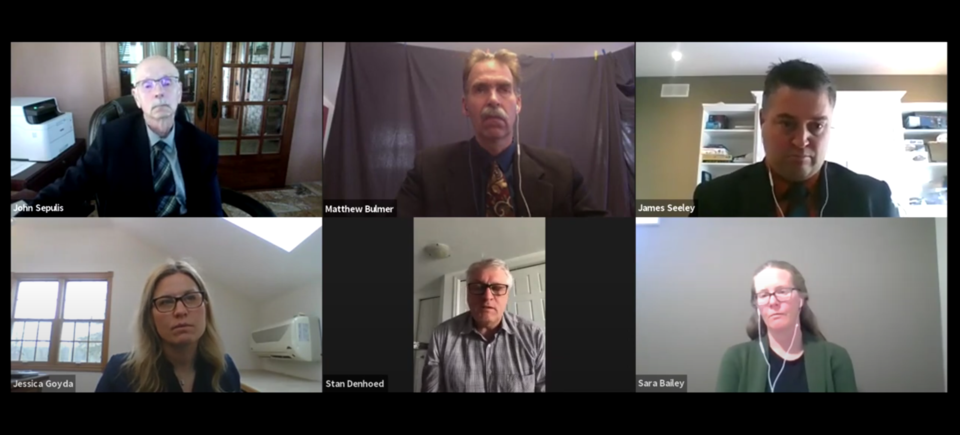PUSLINCH – Puslinch council is requesting a local gravel pit to temporarily cease below water table extraction at one of their ponds while water level thresholds are reviewed.
A monitoring report presented by Harden Environmental Services to Puslinch council on Tuesday reported historically low water levels recorded south of the CBM owned Roszell Road pit.
Stan Denhoed, senior hydrologist with Harden, said 2020 was a dry year with low precipitation into winter and into this year.
This low water level can not be only attributed to seasonal climate change as the report notes this isn’t the case at other aggregate sites in the township. A later report on the Mast-Snyder pit reported no concerns of this nature.
The report said the interpretation is that these low water levels are exacerbated by below-water table extraction.
He explained nearby neighbours are reporting their ponds are low and they are seeing the Roszell wetlands adjacent to the pit at historically low levels.
“We continue to be concerned about low levels south of the pit despite the installation of a silt barrier,” Denhoed said. “We’re concerned the effects of the pit are extending on the other side of the barrier and continuing to have an impact on the water level which then affects wetlands, ponds and possibly shallow wells.”
Denhoed also said groundwater and surface water temperatures in the area are higher but monitoring doesn’t show an impact to trout spawning downstream.
The aggregate operator is proposing to move temperature monitors further downstream but this hasn’t been approved by MNRF.
Denhoed said CBM are aware of the low water level issue and are reviewing this on a more frequent basis but water levels have not technically breached a threshold value that would trigger additional investigation and mitigation.
Anecdotally, Denhoed said in his observations of the area that he noticed the wetlands already seem fairly low this year and this year could possibly be another historically low year.
Puslinch council expressed deep concern and some felt this problem needs to be addressed urgently.
Coun. Matthew Bulmer commented this implies the thresholds set are not sufficient to protect the wetlands.
“If a wetland has been allowed to go dry there’s a problem with the threshold,” Bulmer said, adding that work should stop in the area while these concerns are addressed.
“We have enough evidence to suggest there’s a problem there and I don’t think it’s unreasonable to ask that work stops while the problem is addressed.”
Mayor James Seeley said operators have an obligation under provincial policy to not affect the wetland. He also was unclear about the motivation behind moving the temperature monitoring location.
“The way I’m looking at it, they’re breaching their temperature threshold and they want to move the spot so they're in compliance and they don’t have to stop operations or mitigate it,” Seeley said.
“The spot was put in place for a reason so why are we moving it just so they won’t be in violation of their site plan agreement.”
Denhoeld said they are engaged with an ecologist to do additional work on the wetlands to ensure the function of it is being maintained.
“They need to do that before they keep extracting ... once they dig the gravel out the effect is there forever,” Seeley said.
“We need to get ahead of this before they get that pond completed and we’re stuck holding the bag with our residents for eternity.”
Puslinch council unanimously approved a motion to have CBM undertake a comprehensive review to determine what contributes to the lower water levels, that the water level thresholds be reviewed and ask MNRF to require the operator to cease below water table extraction at pond C until concerns have been addressed to the township’s satisfaction.



